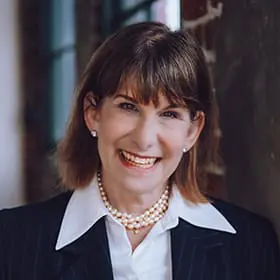
Insights
October 18, 2021
What Women Should Look for in an Advisor
In Wealth Strategy, Women and Wealth

Women’s financial power today is higher than it has ever been before, with estimates that women control 32% of the world’s wealth. That’s an amazing statistic considering that before 1974, women in the United States couldn’t get a credit card in their name if they were single or had to have their husband co-sign for one.
As more women climb the corporate ladder, run their own businesses, and inherit wealth, women’s wealth is expected to reach $93 trillion globally by 2023.
Women have varied life experiences and journeys, which likely influence their financial and investment decisions. A woman who paused her career to take care of children and divorced later in life will have different investment goals and views on money than a widow who inherited assets upon her spouse’s passing. That is something that we keep in mind when working with our clients.
If you are seeking to work with an advisor for the first time due to a life transition or switch to an advisor who is a better fit, here is what we recommend you look for in an advisor.
NO ASSUMPTIONS
When we first meet with a new client, we like to have wide-ranging conversations. Yes, we talk about money, but we also talk about their family, career, life experiences, and goals for the future. We don’t assume when we meet a new women client that she’s coming to us because she knows nothing about her finances or investing, or that she is more risk adverse just because she’s a woman.
Your advisor should treat you as an individual, not lump you into a certain bucket because of your marital status or age. Your advisor should ask questions, listen, and get to know you so that you develop a partnership in reaching your financial and life goals.
FORGET THE JARGON
Some women may love to stay on top of the markets and be familiar with industry jargon. However, we find that most women (and men) prefer that you explain investment opportunities or a wealth management strategy in plain English.
It’s important your advisor explains and educates in a manner you prefer so that you feel confident about your financial decisions and secure in your future. The last thing we want is someone to leave a meeting feeling confused or unsure about a decision.
TRUST IS ESSENTIAL
Your future and legacy are on the line, so it is imperative that you work with an advisor that you trust. We build trust by listening to what our clients are saying, identifying concerns, and laying out a clear plan to help them achieve those goals.
Communication is essential when it comes to building and fostering trust. Your advisor should return your phone calls and emails in a timely manner, ask how you prefer to communicate, provide answers to your questions instead of focusing on talking points, and always act in your best interest. Trust is also built by going back to my first point – treating each person as an individual, not a generalization.
KEY TAKEAWAYS
Your advisor should treat you as an individual with specific needs and goals, not lump you into a generic category because you are a woman. If you find that your current advisor just isn’t the right fit anymore, know that you can find an advisor who will listen to you, value your life experiences, and help you to make the best investment decisions for your future.
About the Author: Kim Rosenberg, CFP® is a Relationship Manager and Wealth Planner who takes a holistic approach to achieving her clients’ financial goals which integrates planning, investing, wealth management, tax implications, and estate planning. She uses her vast knowledge, personal experience, and deep empathy to help women take control of their money and feel secure in their financial journey. She has helped women in all stages of life achieve their wealth goals, especially women facing major transitions like divorce or death of a spouse
Certified Financial Planner Board of Standards Inc. owns the certification marks CFP®, Certified Financial Planner™ and federally registered CFP (with flame design) in the U.S., which it awards to individuals who successfully complete CFP Board’s initial and ongoing certification requirements.
Related Articles

January 22, 2026
5 Questions to Ask When Selecting an Advisor

January 2, 2026
New Gifting and Contribution Limit Changes For 2026


December 15, 2025
Volatility: The Price of Admission to Long-Term Returns

